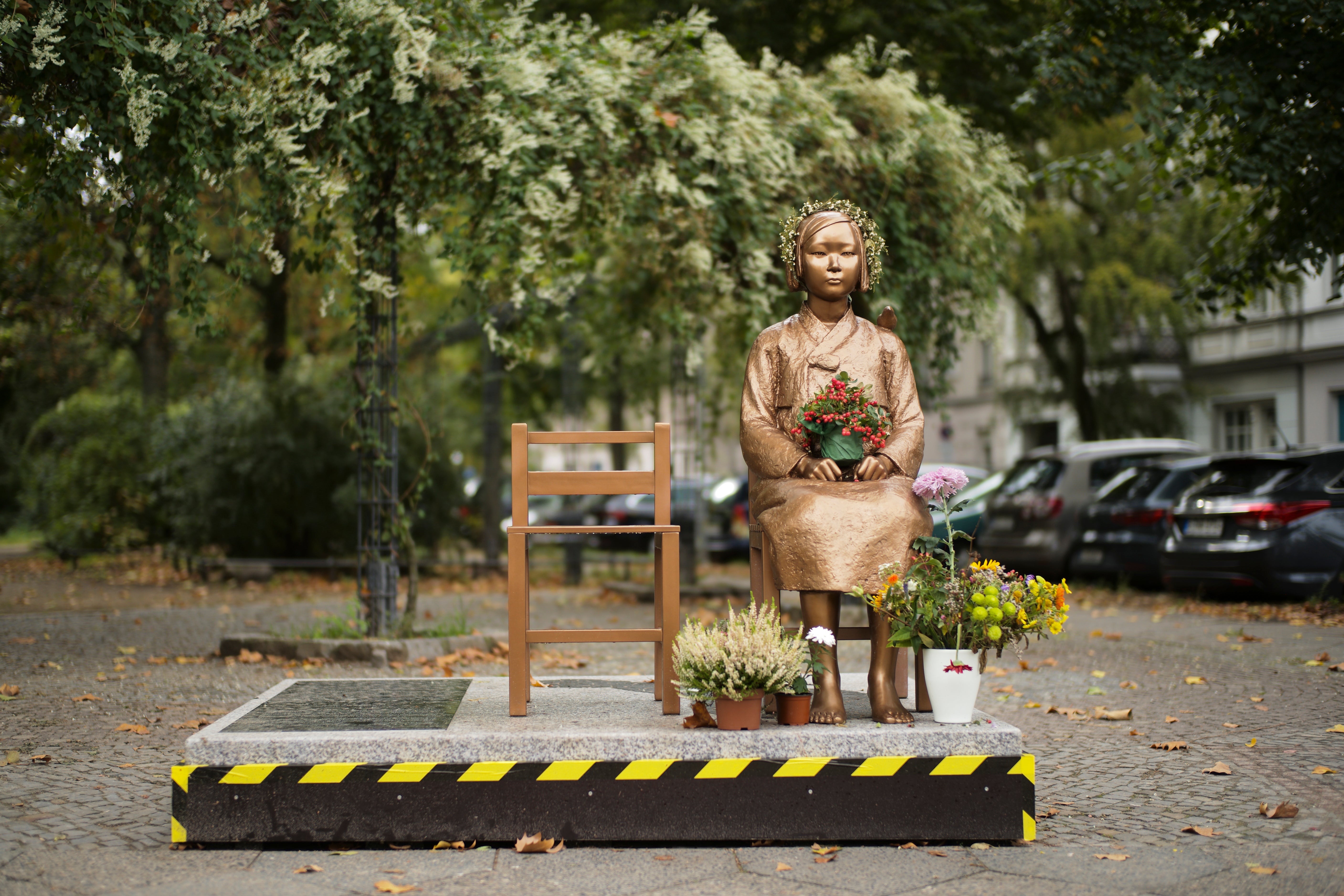Berlin district to keep 'comfort women' statue for now
A Berlin district mayor aims to leave a controversial statue commemorating women who were held as sex slaves by Japan during World War II in its place, at least for now, after Japanese officials asked for the statue to be removed

Your support helps us to tell the story
From reproductive rights to climate change to Big Tech, The Independent is on the ground when the story is developing. Whether it's investigating the financials of Elon Musk's pro-Trump PAC or producing our latest documentary, 'The A Word', which shines a light on the American women fighting for reproductive rights, we know how important it is to parse out the facts from the messaging.
At such a critical moment in US history, we need reporters on the ground. Your donation allows us to keep sending journalists to speak to both sides of the story.
The Independent is trusted by Americans across the entire political spectrum. And unlike many other quality news outlets, we choose not to lock Americans out of our reporting and analysis with paywalls. We believe quality journalism should be available to everyone, paid for by those who can afford it.
Your support makes all the difference.A Berlin district mayor aims to leave a controversial statue commemorating women who were held as sex slaves by Japan during World War II in its place - at least for now, the local government said Thursday, after Japanese officials asked for the statue to be removed.
In the longer term, the mayor advocates a memorial addressing sexual violence in broader terms, officials said.
The issue of sex slaves, euphemistically called “comfort women,” has been a major source of friction between South Korea and Japan. In October, Berlin's Mitte district told a local Korean group to remove the statue, depicting a woman sitting next to an empty chair, after Japan expressed irritation.
Mitte district mayor Stephan von Dassel said at the time that the group had been given permission to display a “peace statue” for one year as a “statement against sexualized violence against women in armed conflicts.” Instead, he said, the statue unveiled in September exclusively addresses the Japanese army's behavior in WWII.
This week, Mitte's district assembly approved a motion urging the local government to let the statue stand and find a solution for its long-term exhibition. Japan's chief cabinet secretary, Katsunobu Kato, said Tokyo will “continue to request the prompt removal of the statue.”
Mitte's district government told The Associated Press in an email that it is in contact with the Korean organization and, via Berlin's city government, with Japanese Embassy representatives. It said local officials agree that permission for the statue shouldn't have been given without an internal discussion of its “political dimension.”
Independently of this week's motion, von Dassel has expressed a “political wish” that the statue be left standing for the remainder of the permitted period, which ends in mid-August, the district said.
It added that, after that time, von Dassel could envision “'a kind of follow-on memorial' that puts the issue of sexualized violence in a larger, more multi-faceted context." But officials noted that it's not up to the mayor whether that idea is realized.
Historians say tens of thousands of Korean women were lured or forced into sexual slavery at Japanese military-run brothels when the Korean Peninsula was under Japanese colonial rule in 1910-45. Japan maintains that it has settled the issue with repatriations, but the country's wartime record continues to strain relations with its Asian neighbors.